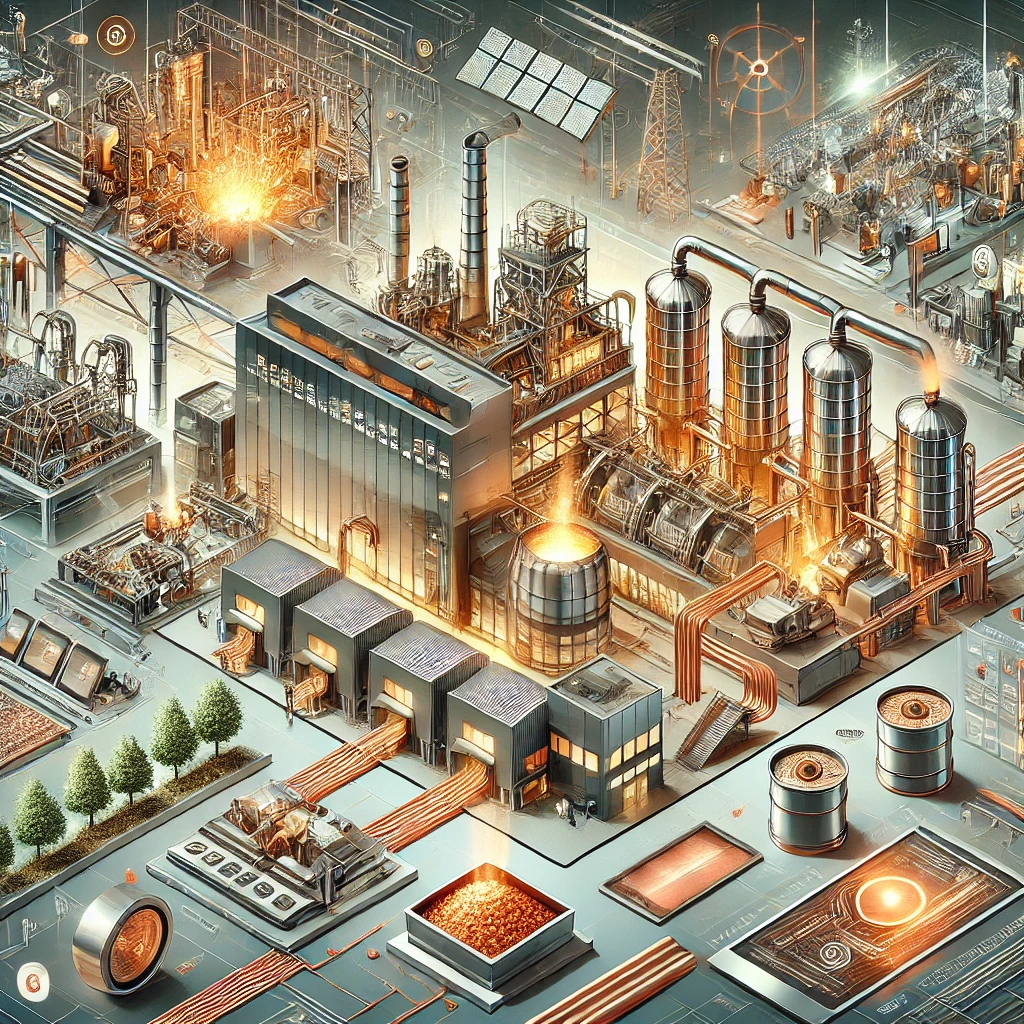Top Applications of Copper Concentrate in Manufacturing
Copper concentrate is a highly valuable material derived from the processing of copper ore. It contains a high percentage of copper, making it a key intermediate product for various industrial applications. Copper concentrate is used extensively in manufacturing processes due to its excellent conductivity, durability, and versatility. This blog explores the top applications of copper concentrate in manufacturing and highlights its significance across multiple industries.
What is Copper Concentrate?
Copper concentrate is the result of processing copper ore, which undergoes crushing, grinding, and flotation to extract copper-rich material. It typically contains 20-40% copper along with other valuable elements such as gold, silver, and molybdenum. The high copper content and purity make it an essential raw material for downstream manufacturing industries.
Top Applications of Copper Concentrate in Manufacturing
1. Copper Smelting and Refining
- Primary Application: Copper concentrate is processed in smelters to extract pure copper metal.
- End Products: The refined copper is used in wires, pipes, and sheets.
- Industry Use: Electrical, plumbing, and construction industries depend heavily on smelted copper.
2. Electrical and Electronics Manufacturing
- Copper’s Role: Its exceptional electrical conductivity makes copper indispensable in electronics.
- Applications: Copper derived from concentrate is used in cables, circuit boards, and electronic components.
- Examples: Smartphones, computers, and household appliances.
3. Renewable Energy Systems
- Importance in Energy: Copper is a key material in renewable energy applications due to its conductivity and resistance to corrosion.
- Applications: Solar panels, wind turbines, and energy storage systems rely on copper.
- Future Growth: The global shift toward green energy is driving demand for copper concentrate.
4. Automotive and Transportation Industry
- Copper in Vehicles: Modern vehicles, especially electric vehicles (EVs), require large amounts of copper.
- Applications: Wiring harnesses, batteries, and electrical motors.
- Industry Expansion: The transition to EVs significantly increases the need for copper concentrate.
5. Construction and Infrastructure
- Structural Applications: Copper is used in plumbing, roofing, and building materials for its durability and corrosion resistance.
- Green Buildings: Copper’s recyclability makes it a preferred material in sustainable construction projects.
6. Alloy Manufacturing
- Versatile Applications: Copper concentrate is used to produce alloys such as brass and bronze.
- Industry Use: Decorative items, machinery components, and musical instruments rely on these alloys.
7. Chemical Industry
- Catalytic Properties: Copper derived from concentrate is used in the production of chemicals and catalysts.
- Applications: Fertilizers, petrochemicals, and specialty chemicals.
Why is Copper Concentrate Important for Manufacturing?
- High Purity and Versatility: Copper concentrate provides a reliable source of high-quality copper for diverse applications.
- Sustainability: Copper is fully recyclable, reducing environmental impact and promoting resource efficiency.
- Essential for Growth Industries: Sectors like renewable energy, electric vehicles, and smart technologies are driving demand for copper.
Challenges in Using Copper Concentrate
- Environmental Concerns: Smelting and refining processes can generate emissions and waste if not managed responsibly.
- Supply Chain Disruptions: Political and economic instability in copper-rich regions can impact supply.
- Rising Costs: Increased global demand is driving up prices, affecting production costs.
Future Trends in Copper Concentrate Applications
- Growth in Renewable Energy: As the world transitions to green energy, the demand for copper concentrate in solar, wind, and battery technologies is expected to surge.
- Electric Vehicle Expansion: EV production will drive the need for copper in batteries, motors, and charging infrastructure.
- Advanced Manufacturing: Smart factories and IoT devices will rely on copper’s conductivity for seamless operations.
Conclusion
Copper concentrate plays a pivotal role in modern manufacturing, driving advancements in industries such as electronics, renewable energy, automotive, and construction. Its versatility and high copper content make it an indispensable material for producing high-quality products. As demand for sustainable solutions and advanced technologies grows, copper concentrate will remain at the forefront of industrial innovation.
By understanding its top applications and addressing challenges in sourcing and processing, businesses can leverage copper concentrate to enhance their manufacturing capabilities and contribute to a sustainable future.
